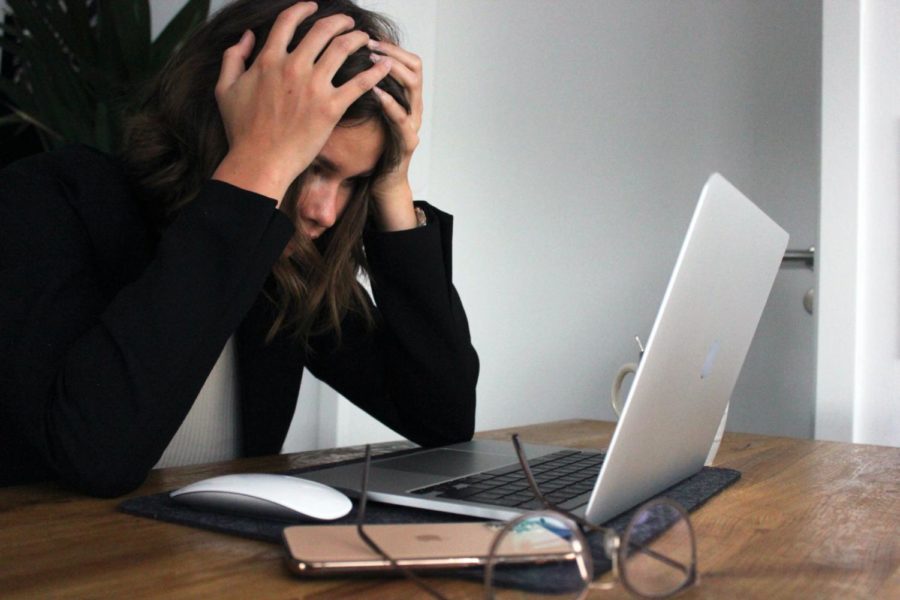Prioritizing Mental Health: Proposed Legislation for Absences in New York Schools
A new bill proposed in the New York State Senate, by Senator Brad Hoylman, aims to address rising levels of mental health disorders among teens by granting “mental health days” – that is, excused absences from school.
Across the world. high school students are experiencing record levels of stress, anxiety, and depression. The question is: what is to be done?
“Mom please, please don’t make me go!” These words are a pleading cry. These same words, familiar to overworked high school students the world over, echo through homes today, as they have for generations. When a student’s world gets bogged down, and becomes monotonous and frustrating, it’s not uncommon for that student to want a day off — a moment to breathe among a swell of continuous tasks and responsibilities. A new bill proposed in the New York State Senate would grant students “mental health days,” excused absences intended for a variety of reasons — perhaps relaxing after a large project or test, an appointment with a therapist, a day after a rough breakup, or a family emergency.
This January 2023, Senator Brad Hoylman of New York’s 47th Senate District proposed bill S563, to “provide for absence from school for the mental or behavioral health of the minor.” The bill echoes similar legislation proposed in 2017 and 2019, yet the most recent proposal comes as a response to hiking levels of depression, anxiety, and mental health concerns for teens following COVID-19. In fact, California, Illinois, Maine, and Oregon are among the states that passed legislation in the past two years, with twelve states having provisions for mental health days in total.
Social isolation coupled with an increasingly digital age has fueled a mental health epidemic among children and teenagers. The U.S. Department of Education’s Institute of Education Sciences (IES) conducted a study that found at least 70% of public schools across the nation have reported an increase in the number of students seeking mental health services since the start of the coronavirus pandemic. Unfortunately, many schools don’t have the resources or a concrete plan to help numerous struggling students.
Senator Hoylman views mental health days as a way to tackle this issue head-on, and reach underserved children and teenagers, silently suffering in the current system. Hoylman said, “We need to…demolish the stigma around mental health care, and do everything within our power to help kids who are struggling seek treatment. An absence from school should never be a barrier to mental health treatment for a child in New York State.”
For New York, the bill is still in the early stages, currently being discussed in the Senate education committee. From then, it must be passed by the state senate and assembly, at which point the governor has the final veto power.
The bill addresses a controversial topic; different groups have varying takes on the efficacy of mental health days. Students overwhelmingly, and unsurprisingly, tend to be in support. A non-profit group, Mental Health America, found more than half of surveyed teenagers reported that a break from school would be one of the top three most beneficial steps in improving their mental health. However, a break from school might mean more to students than one or two days off. More specifically, a Harris Poll of more than 1,500 teenagers found 78 percent agreed that schools should support or provide mental health absences.
While it may seem that parents would not support their kids skipping school, that is often not the case. A survey from Very Well Mind, a mental health publication of 1,000 parents from across the nation, reports clear support among parents and guardians. 56% of parents have let their kids take a mental health day in the past and another 32% would consider it. Across the board, 74% of parents believe that schools should offer mental health days.
Even with this, not all parents are easily allowing their kids a free day off school. For several students, parents may be the primary barrier to taking a day off, even if they are legitimately sick. While this bill might make these absences acceptable, parents are not guaranteed to get on board.
The specifics of mental health days in the proposed bill are quite vague. When a student takes a mental health day and claims it as an excused absence, there is no doctor’s note to turn in, there is no board of jurors, and there is no one deciding what grounds constitute a mental health day. In many ways, if students claim they took a mental health day, even if they just stay home to watch TV, that absence can be excused, whatever that may mean to them.
Alma Arazi ’25 said, “I think the only issue with student mental health days is they could easily be abused. Students could say, ‘Let’s all take our excused absences today and go to Coney Island.’ Teenagers, impulsive and occasionally reckless, may take any opportunity they get to ditch school and party.
Yet, there are two sides to every argument. Arazi continued, “On the other hand, there’s an argument to be made saying that if you’re taking a day off with your friends, it’s good for your mental health.” The problem is the concept of mental health days is perpetually a gray area.
For students, particularly those at Bronx Science, stress is hard to avoid as college acceptance rates decrease and high school becomes increasingly cut throat and competitive. As students worldwide experience more stress than ever before, perhaps time allocated for relaxation and unwinding is not only beneficial but outright necessary. Julie Lythcott Hiams, a council member in California, author of The New York Times Bestseller How to Raise an Adult, and a parent herself, said “The fact is young people are suffering, and I applaud the fact that states are recognizing it and trying to do something at the legislative level.”
On the other hand, the idea of mental health days may promote the idea that everyone has mental health issues or needs a diagnosis when they suffer from the same normal anxieties as their peers. Greg Lukianoff, co-author of The Coddling of the American Mind: How Good Intentions and Bad Ideas Are Setting Up a Generation for Failure, said, “By telling students that they need mental health days, parents and educators may be unintentionally telegraphing to students that they are both more fragile than they actually are and under a greater threat than they actually may be. Such diagnoses and labels may stick with kids for years to come, exacerbating existing mental health issues, and possibly causing dependency on medication. Lukianoff adds, “I am concerned that sometimes the very efforts to address mental health may undermine it.”
Further concerns arise if letting children skip school when they aren’t feeling their best promotes avoiding their problem, or perhaps reinforces that school is the issue. Parents allowing their kids to skip school may in fact be counteractive to raising more resilient children. The same way research shows if you expose a baby or toddler to peanuts, they are less likely to develop a peanut allergy, is it possible that if you expose children to challenges, and build perseverance, they may be less likely to struggle with mental health concerns in their teen years.
A 2021 study in the Atlantis Press uncovered a clear correlation between overparenting and harmful ideation in adolescents. Hyams said, “If parents over-accommodate natural childhood challenges and make the problem go away, they can unwittingly foment full-blown anxiety around a natural fear.” Studies show kids will end up growing up with less independence as helicopter parenting struggles to handle issues independently.

Supporters of mental health days don’t often realize that it can be fueling a cycle of increased stress, anxiety, or depression rather than solving one. Lukianoff said, “Perhaps having additional mental health days would be beneficial, but I do hope parents and administrators in the school districts grapple with the possibility that they may be implicitly sending a deeply disempowering message to students which may actually feed the cycle of anxiety and depression rather than mitigate it.”
The key question is whether days off from school are the right solution to a growing mental health crisis. Arazi said, “The repetitiveness of school and the fact that you’re required to go every day is in place for a reason. School is difficult, but I know I need to be here every day. I can’t just not go. I think in terms of mental health, making schools a more hospitable place would be a better way of prioritizing students than having to avoid school altogether.”
On the same note, Hyams said, “It does beg the question: Why aren’t we addressing the underlying issue of why academic stress is up the wazoo. What we really need is relief from the work.”
Yet perhaps something, even one piece of legislature is better than nothing. As the issue of teen mental health continues to rise, various solutions and ideas are proposed. The debate over mental health days is a crucial ongoing conversation to combat a growing and devastating crisis. Hoylman said, “This is only part of the solution, we need to be supporting increased funding for mental health care workers in school, make mental health care more affordable generally, incentivize recent social work and psychiatric graduates to enter the public health workforce. This is just one piece of a much larger puzzle.”
Alma Arazi ’25 said, “School is difficult but I know I need to be here every day. I can’t just not go. I think in terms of mental health, making schools a more hospitable place would be a better way of prioritizing students than having to avoid school altogether.”
Liza Greenberg is a Managing Editor and Advisory Editor for ‘The Science Survey.’ She is responsible for editing and her classmates' articles, and...











